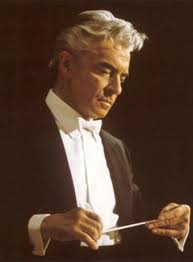But over the years if nothing else I've developed a very definite idea of what is good art and not good art. And in fact I do have to say that most of what is actually taught as art does not appeal to me. There's a whole series of art instruction books called North Light, or there used to be, and I have to say I just about always dislike everything offered as examples in those books. The same applies for the most part to art instruction I've found online. I don't like the stuff. There are exceptions, I've found some art I do like, but it's usually by people who aren't teaching it.
(If I maintain some interest in writing about this topic beyond this one post I may link to some of these sites to illustrate my opinions. I may even try to understand my own opinions better than I do.)
Recently I found another instruction site and at first encounter I liked the program. As usual I didn't much like the art but I thought I could get something out of the program anyway, and perhaps I could. It's expensive, though, for me anyway, and I'd have to save up even to take the bite-size modular version of it. So I'd have to be very sure I want this course and could benefit from it. I like that he provides all the materials, even the camera to take the pictures to submit for evaluation, relieving the student of a lot of responsibility. Quality control there, and predictability. And it cuts way down on the decision-dithering I'm prone to. I need that. Also, having to submit work does prod one to actually do the assignment and actually try to learn something. I need that as well.
But as I got to mulling it I got more and more doubtful about it based mainly on my reaction to the teacher's artistic judgments. I tried to tell myself I could still learn basics, techniques etc., but eventually I was back to my usual doubting mania and I guess I won't be taking the course.
But one part of his site stuck in my mind and I think I'd like to talk about it. This is where he gives a sample critique of a student's work and I liked the student's work so much better than his "correction" of it I thought it might be worthwhile to try to analyze and explain my reaction.
Here's the student submission:

Here's the page where the instructor discusses it.
Here's his "corrected" version of it:

First I want to say that what I like about the student's work is primarily the color and the tone and the atmosphere. I love the softness of the colors. I think they all work together beautifully. They don't fight with one another, they enhance one another, they form an overall unity that makes the work art. I think this student has the very talent I wish I had. I'm more likely to produce something that grossly imitates nature and loses the beauty. This student captures the beauty in the color. I love the way he's painted the water, I love how it works with the tone of the sky. I love the muted red of the building and the sensitive shadings in the red. I love the way the gray tone of the roofs is shaded from dark to light. I love the way the white of the seagull is echoed in the white of the buildings at either side of the picture and in the clouds. The pilings even manage to echo the red of the building somewhat. The colors and tones in this picture are really admirable it seems to me.
Clearly there's a problem anyone can see right away with how the buildings are on a tilt or a slant. The student doesn't have a good grasp of perspective. It's enough of a problem in the painting that it would have to be corrected somehow, but I'd want to go very carefully in a critique about this because there's so much good in the picture otherwise -- good that the instructor seems to ignore completely. I think this is merely a problem with perspective, but the instructor instead finds problems with composition. I don't see it.
I don't really see a visual problem with the seagull's tail leading the eye off the picture, which the instructor noted, although maybe the bird should be moved a bit more into the picture, but I'm loath to correct too much in this charming painting. Actually, I just LIKE this seagull. I like his fat white body. I think he can stay where he is without a big problem really. The tail is darkened so it doesn't really make a sharp line pointing off the canvas. Still, sure, ideally it should probably be moved in a bit.
The instructor makes much of lines of sight leading out of the picture and wants to encourage creating lines of sight that lead into it. I've encountered this kind of critique many times before in art instruction discussions. Sometimes I see the point, sometimes I don't. In this case I don't. At least if it results in the sort of painting the instructor produced there's nothing I can find to praise in it. The quiet water in the student's painting is part of the overall design. It's a quiet design. If there is a problem with lines leading outside there must be a far more subtle solution than the garish busyness the instructor produces. He's created a busy sky instead of the student's tranquil sky, and very busy water, and lost the beauty of color and tone and atmosphere. I even have the feeling he's created more of the kind of problem with sight lines that he wanted to correct, with the strong lines of the water pointing down to the lower right. The red of the building is garish and harsh and fights with all the other colors in the picture. He's lost the softness in the gray of the roofs. He's lost the lovely relationship between the whites and substituted a harsh dark silhouette in the bird, and made hard dark shadows elsewhere. It's UGLY. Whatever the faults of the student's painting, it has a beauty in it, a sensitivity, a real artistic feeling the instructor seems to overlook completely. After analyzing all this I'm now convinced it would be useless to take classes from someone whose aesthetic judgment seems to me to be so wrong.
Without mentioning it the instructor includes a corrected perspective in his painting and it's true that the student's perspective needs some correction, to bring it more down to the horizon and correct the upward tilt to the left. But I'd rather leave it as is than force the artificial hard-lined perspective of the instructor's version. I also like the student's rendering of the upright posts around the stone wall. The instructor's are too extreme and formulaic, the student's are nicely positioned in the total scheme.
Eventually I came to the conclusion that the instructor's analysis of the directional lines in the painting is just wrong. Perhaps I'm insensitive on this point but I just don't see it. Here's his sketch of the problem:
 I just don't see that the tilt of the central group of buildings has that supposedly strong effect of driving the sight off the picture frame. I agree there's something wrong with the tilt itself, but as far as directional lines of sight goes there are many other elements in the picture that stop the movement. In studying it again I see a strong balancing element to that movement in the line of the bird's back -- even the whole body of the bird -- which points right to the red building in the center of the picture. In fact that is the movement I tend to see first, and not this supposed movement out of the frame. The line of the peaked roof on the right also points to the red building. I also see the offending directional line coming to a halt at the vertical where the stone wall has turned away toward the right distance. I don't see it moving beyond that point but stopping there. Also, the many vertical lines in the painting, the pilings, the uprights around the stone wall, the edges of the buildings themselves, stabilize it and prevent any wild movement off the edge. The horizontal lines in the water and the sky add to the overall impression of stability. So I just don't see this supposed sight-direction problem. There is still the perspective problem, but if that were corrected to bring the tilted lines on the left into the vertical/horizontal overall movement of the painting, the directionality the instructor is objecting to would be completely eliminated.
I just don't see that the tilt of the central group of buildings has that supposedly strong effect of driving the sight off the picture frame. I agree there's something wrong with the tilt itself, but as far as directional lines of sight goes there are many other elements in the picture that stop the movement. In studying it again I see a strong balancing element to that movement in the line of the bird's back -- even the whole body of the bird -- which points right to the red building in the center of the picture. In fact that is the movement I tend to see first, and not this supposed movement out of the frame. The line of the peaked roof on the right also points to the red building. I also see the offending directional line coming to a halt at the vertical where the stone wall has turned away toward the right distance. I don't see it moving beyond that point but stopping there. Also, the many vertical lines in the painting, the pilings, the uprights around the stone wall, the edges of the buildings themselves, stabilize it and prevent any wild movement off the edge. The horizontal lines in the water and the sky add to the overall impression of stability. So I just don't see this supposed sight-direction problem. There is still the perspective problem, but if that were corrected to bring the tilted lines on the left into the vertical/horizontal overall movement of the painting, the directionality the instructor is objecting to would be completely eliminated.Here's how I see the directional lines in the existing painting:

That is, I see more lines focusing inward than outward, and many lines balancing or outright stopping movement out of the frame.
A FEW DAYS LATER:
So I got to fooling around in Paint again, and came up with a way the perspective problem could be corrected by skewing the middle part of the picture:

You can see by the color wedges I inserted how much I skewed it to get it to the horizontal. Skewing it unfortunately puts a new tilt into it, to the tall red building, and removes some of the bird's plumpness, but I think the alteration at least makes the point that the problem is with perspective and not with composition or directional lines.











